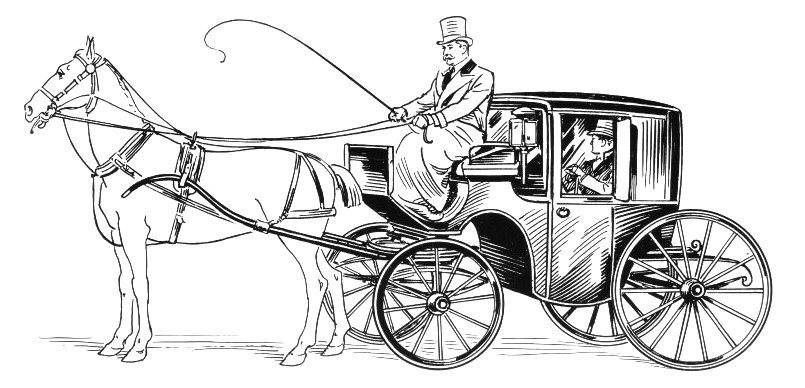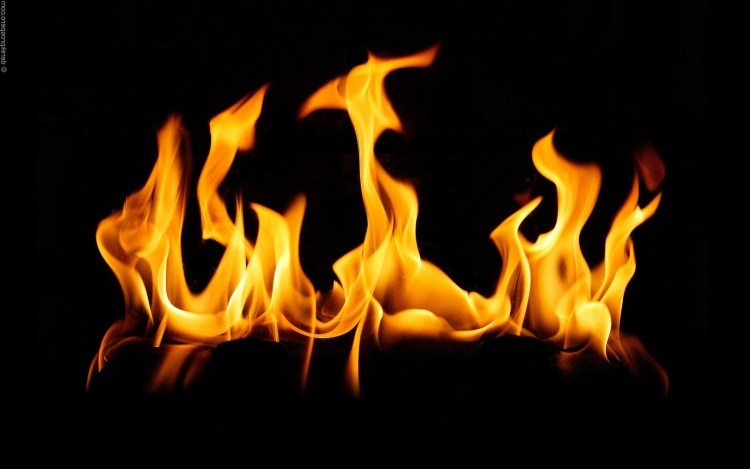Alchemical Inner Fusion and the Parable of the Coach
From “Gnosis I – The Exoteric Cycle” by Boris Mouravieff
In Western civilization the interior life of the individual, with all its richness, finds itself relegated to a minor role in existence. Man is so caught up in the toils of mechanical life that he has neither time to stop nor the power of attention needed to turn his mental vision upon himself. Man thus passes his days absorbed by external circumstances. The great machine that drags him along turns without stopping, and forbids him to stop under penalty of being crushed. Today like yesterday, and tomorrow like today, he quickly exhausts himself in the frantic race, impelled in a direction which in the end leads nowhere. Life passes away from him almost unseen, swift as a ray of light, and man falls engulfed and still absent from himself.
When we ask someone who lives under this constant pressure of contemporary life to turn his mental vision towards himself, he generally answers that he has not enough time left to undertake such practices. If we insist and he acquiesces, he will in most cases say that he sees nothing: Fog; Obscurity. In less common cases, the observer reports that he perceives something which he cannot define because it changes all the time.
This last observation is correct. Everything is in fact continually changing within us. A minor external shock, agreeable or disagreeable, happy or unhappy, is sufficient to give our inner content I a quite different appearance.
If we follow up this interior observation, this introspection, without prejudice, we will soon constate, not without surprise, that our I, of which we are so consistently proud, is not always the same self: the I changes. As this impression becomes more defined we begin to become more aware that it is not a single man who lives within us but several, each having his own tastes, his own aspirations, and each trying to attain his own ends. Suddenly we discover within us a whole world full of life and colors which until now we had almost entirely ignored. If we still proceed with this experience, we will soon be able to distinguish three currents within that perpetually moving life: that of the vegetative life of the instincts, so to speak; that of the animal life of the feelings; and lastly that of human life in the proper sense of the term, characterized by thought and speech. It is almost as if there were three men within us, all entangled together in an extraordinary way.
So we come to appreciate the value of introspection as a method of practical work which permits us to know ourselves and enter into ourselves. As we gradually progress, we become more clearly aware of the real situation in which we find ourselves. The inner content of man is analogous to a vase full of iron filings in a state of mixture as a result of mechanical action. Every shock received by the vase causes displacement of the particles of iron filings. Thus real life remains hidden from the human being due to the constant changes occurring in his inner life.
Even so, as we shall see later, this senseless and dangerous situation can be modified in a beneficial way. But this requires work; conscientious and sustained effort. Introspection carried out relentlessly results in enhanced internal sensibility. This improved sensibility in its turn intensifies the amplitude and frequency of movement whenever the iron filings are disturbed. As a result, shocks that previously were not noticed will now provoke vivid reactions. These movements, because of their continuous amplification, can create a friction between the particles of iron so intense that we may one day feel the interior fire igniting within us.
This fire must not remain a harmless flare-up. Nor is it enough that the fire smolders dormant under the ashes. A live and ardent fire once lit must be carefully kept alight by the will to refine and cultivate sensitiveness. If it continues in this way, our state can change: the heat of the flame will start a process of fusion within us.
From this point on the inner content will no longer behave like a heap of iron filings: it will form a block. Then further shocks will no longer provoke interior change in man as they did previously. Having reached this point he will have acquired a firmness; he will remain himself in the midst of the tempests to which life may expose him. This is the perspective before those who study esoteric science. But to reach the state which has already been described, we must from the beginning rid ourselves of all illusion about ourselves, no matter how dearly held; an illusion of this kind, if it is tolerated at the start, will grow en route, so that suffering and additional effort will be necessary in order to rid ourselves of it at a later date.
As long as man has not reached the point of fusion, his life will be in effect a factitious existence, as he himself will change from moment to moment. Since these changes will occur as a result of external shocks which he can almost never foresee, it will also be impossible for him to predict in advance the exact way he will change internally. Thus he will live subject to events as they occur, always preoccupied by constantly ‘patching up’ (‘replastering’). He will in fact progress toward the unknown, at the mercy of chance. This state of things, named in the Tradition The Law of Chance, or The Law of Accident, is — for man as he is—the principal law under whose authority he leads his illusory existence.
Esoteric science indicates the possibilities and the means of freeing oneself from this law [and the “General Law”, i.e. hyperdimensional matrix]. It helps us to begin a new and purposeful life; first to become logical with ourselves, and finally, to become our own master. But to begin effectively on this way, one must first clearly see the situation as it is. A parable found in the most ancient sources permits us to get a clear picture of this, and so keep this condition in mind.It is the parable of the Coach/Carriage.
The Parable of the Coach

This image represents the characteristics of man by a coach. The physical body is represented by the coach itself; the horses represent sensations, feelings and passions; the coachman is the ensemble of the intellectual faculties including reason; the person sitting in the coach is the master. In its normal state, the whole system is in a perfect state of operation: the coachman holds the reins firmly in his hands and drives the horses in the direction indicated by the master. This, however, is not how things happen in the immense majority of cases. First of all, the master is absent. The coach must go and find him, and must then await his pleasure. All is in a bad state: the axles are not greased and they grate; the wheels are badly fixed; the shaft dangles dangerously; the horses, although of noble race, are dirty and ill-fed; the harness is worn and the reins are not strong.
The coachman is asleep: his hands have slipped to his knees and hardly hold the reins, which can fall from them at any moment. The coach nevertheless continues to move forward, but does so in a way which presages no happiness. Abandoning the road, it is rolling down the slope in such a way that the coach is now pushing the horses, which are unable to hold it back. The coachman, fallen into a deep sleep, is swaying in his seat at risk of falling off. Obviously a sad fate awaits such a coach. This image provides a highly appropriate analogy for the condition of most men, and it is worth taking as an object of meditation.
Salvation may however present itself. Another coachman, this one quite awake, may pass by the same route and observe the coach in its sad situation. If he is not much in a hurry, he may perhaps stop to help the coach that is in distress. He will first help the horses hold back the coach from slipping down the slope. Then he will awaken the sleeping driver and together with him will try to bring the coach back to the road. He will lend fodder and money. He might also give advice on the care of the horses, the address of an inn and a coach repairer, and indicate the proper route to follow.
It will be up to the assisted coachman afterward to profit, by his own efforts, from the help and the information received. It will be incumbent on him from this point on to put all things in order and, open eyed, to follow the path he had abandoned. He will above all fight against sleep, for if he falls asleep again, and if the coach leaves the road again and again finds itself in the same danger, he cannot hope that chance will smile upon him a second time; that another coachman will pass at that moment and at that place and come to his aid once again.
~ from “Gnosis I – The Exoteric Cycle” by Boris Mouravieff







